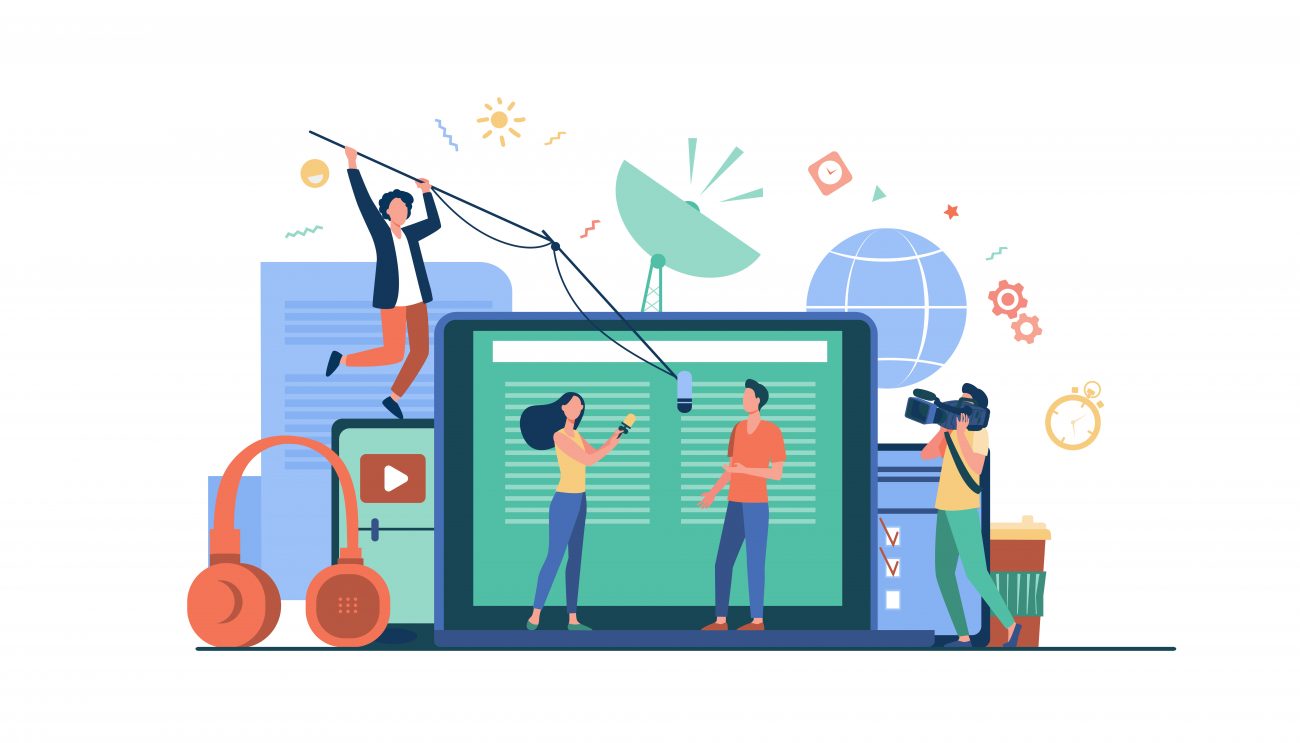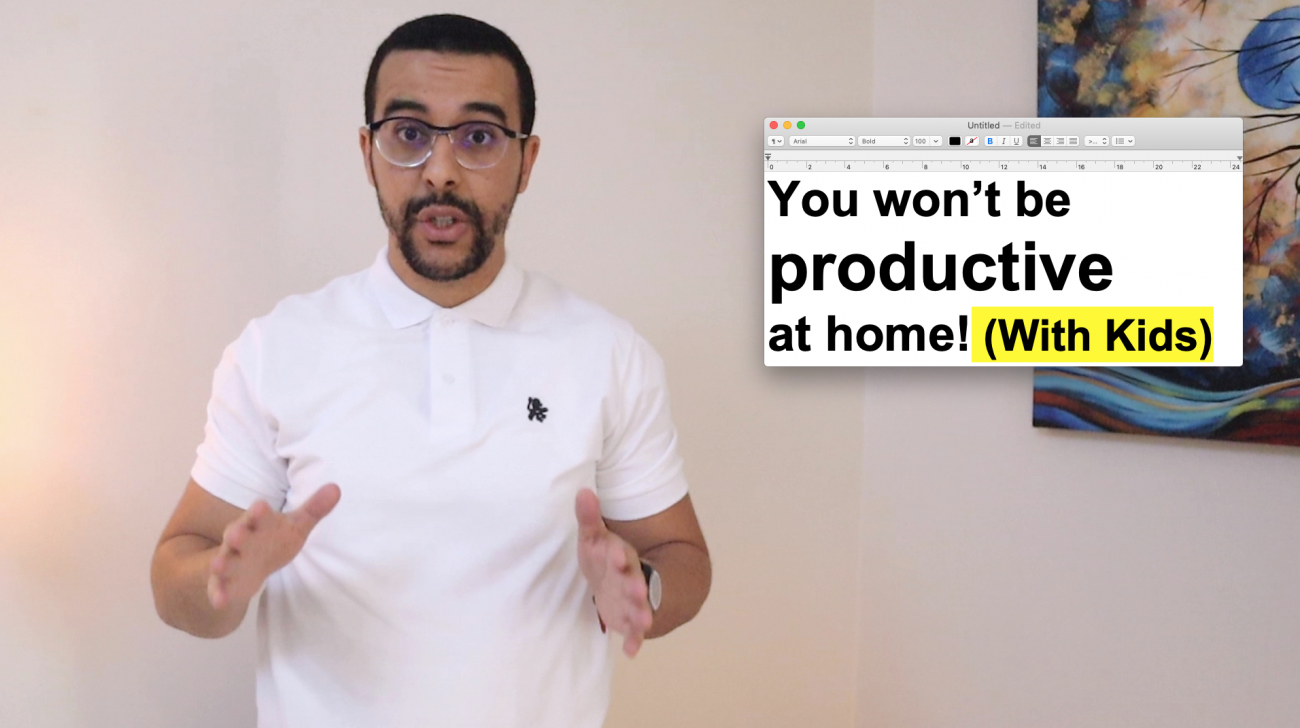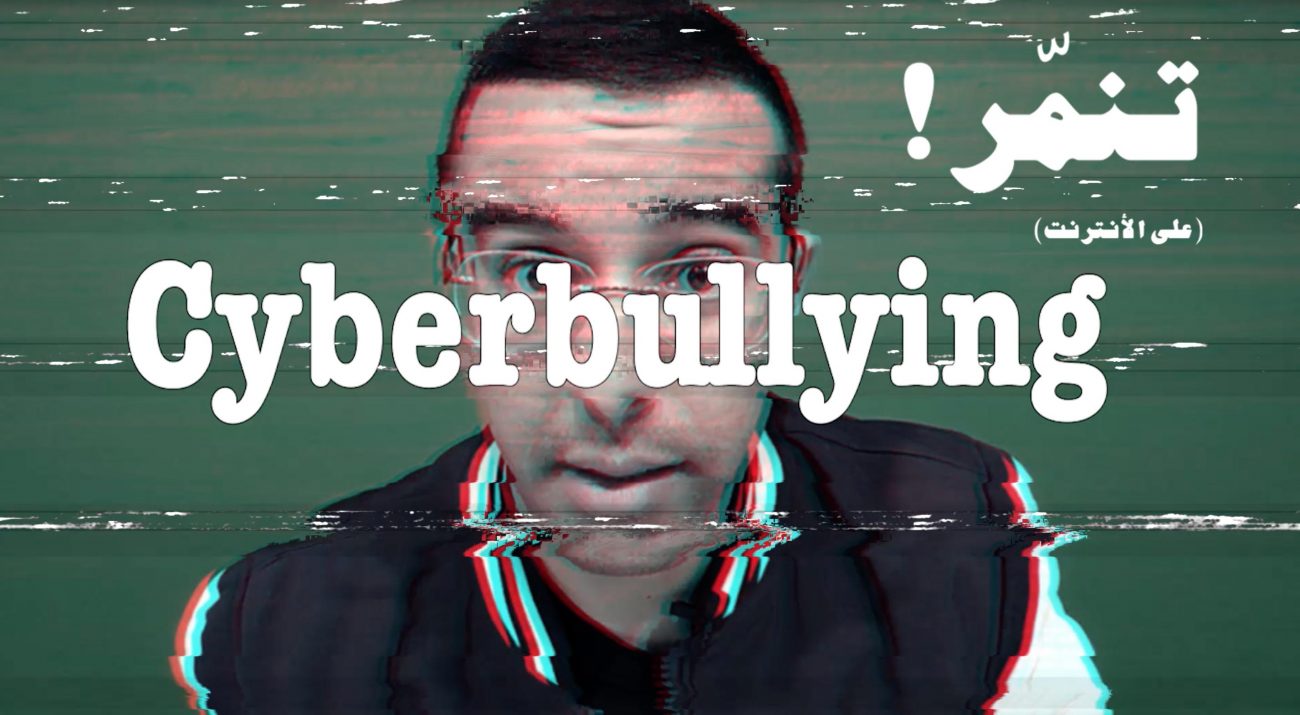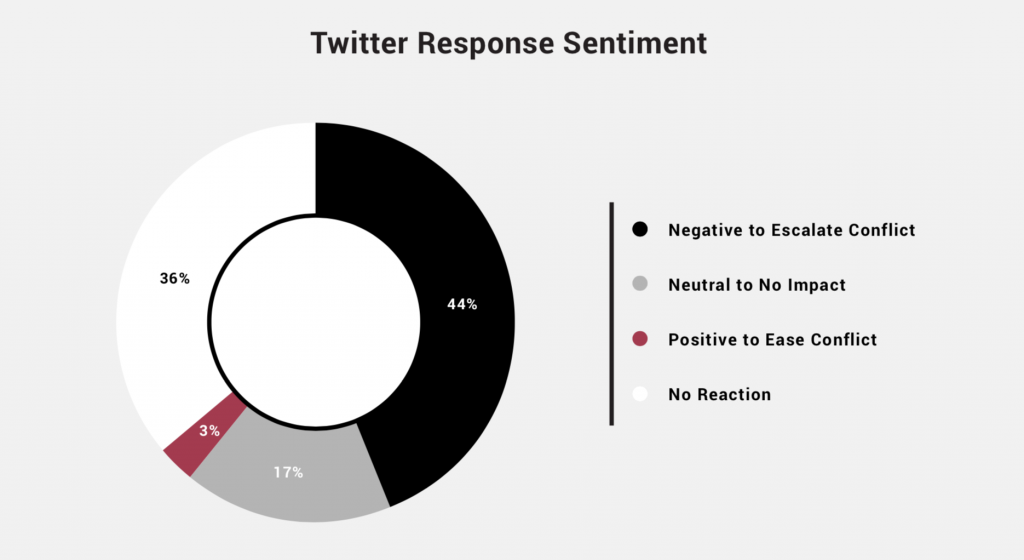The short answer is NO.
I’ll tell you a quick funny story on how I managed to work with AJ+ Arabic without even knowing how to type a text on the screen in Arabic. But Shuuut! Don’t tell my boss! Continue reading
Husband and Father. Community Manager. I cook Podcasts and I check facts

The short answer is NO.
I’ll tell you a quick funny story on how I managed to work with AJ+ Arabic without even knowing how to type a text on the screen in Arabic. But Shuuut! Don’t tell my boss! Continue reading

I work 2 jobs like almost every parent. A full-time Community Manager for a great media company and part-time father of two kids. And I’ve never expected to deal with such a complicated mission… Much more complicated than the full-time one! Which is being a parent.
I don’t have any problem to change diapers or play with my kids even when I’m extremely tired and just want to lay down on the sofa, the problem is when my smartphone becomes the predominant method to keep my kid calm and away from me and want him to stop crying to continue that online meeting with my colleagues and managers (if you’re like me working remotely in those hard times) And I know what you’re thinking about… Ban them completely? if you decide to be the super radical parent and ban those technologies from your child… It’s riskier than you think… Because the more walls you build, the more you’re just creating little thirsty hackers trying to get around the fence.
Scientists have warned that Two or more hours of screen time a day could lead to behavioral and attention problems and the more the child is glued to the tablet the poorer is the progress on his/her communication skills, problem-solving and social interaction over time.
We all know or heard about the risks of letting children be exposed to tech devices. But the real problem is not the child’s addiction. The real problem is us (Parents)!
How can you imagine your kid’s behavior if he/she is seeing you spending too much time on your screen? After only one week of confinement because of the coronavirus, I would say that working from home with kids is not easy at all, I’m physically present but emotionally absent! Sticking to my laptop for 8 hours and maybe more sometimes, I can barely steal little breaks to move around, stretch, and play with my kids.
In a study, researchers surveyed more than 6000 children, aged 8 to 13, from different countries and cultures and found that nearly 1/3 of children felt unimportant when their parents were distracted by their phones. My elder son is almost 3 years now and understands quite a lot of things, after reading about this survey, I was constantly thinking if I did emotionally hurt him. I have to say that I’m a bit of an addict to my phone and try as much as possible to ditch it especially when I’m with my family, but when you’re working for a digital news organization, you HAVE to be always connected to follow what’s happening in the world!
This is not a negative message but a realistic point of view and working parents with kids at home will be empathetic. Basically I have two choices: either I give my child that magical tool called technology and assume its dangers to focus at work or minimize my working time and give priority to my kids. I wanted to know if there is a way to keep my kids amused (without technology) but at the same time accomplish my daily tasks and progress at work, so I’ve talked to Khalil Melaouhia, a psychologist and member of Ahkili, the first psycho-social helpline platform in Tunisia and Africa, who told me that the first thing we’re talking to parents about is keeping in mind that this is a special situation and it needs a special behavior which implies more patience, and without putting yourself in a pressure to be at your normal level of productivity like you would do normally at the office.
For Khalil Melaouhia, kids should not be exposed to screens until the age of 5! This is the best-case scenario of course but it’s hard to stick to it. According to the World Health Organization (WHO), children need to sit less and play more to grow up healthy!
“Improving physical activity, reducing sedentary time and ensuring quality sleep in young children will improve their physical, mental health and well-being, and help prevent childhood obesity and associated diseases later in life” says Dr. Fiona Bull, programme manager for surveillance and population-based prevention of noncommunicable diseases, at WHO.
That being said, those guidelines are probably non-applicable since kids are unfortunately imprisoned and the entire world is on lockdown because of Covid-19. So let’s be honest, kids will get more screen time those days and we hope that the situation doesn’t get worse. An extra 45 minutes of Masha and the Bear, while you’re finishing a very urgent task, is not the end of the world.
I’ve had a great talk as well with Ines Baccouche, CEO, and founder of ArtForNess, and mother of 2 kids who decided to build her own startup company and work from home even before this pandemic spread out and compels nations to be in confinement. I’ve needed in this research someone experienced who could give me tips for working from home with kids and how to ease the burden for this unprecedented situation.
I really appreciated the way Ines values books and how important reading is for her kids. And I would like to insist more here about the importance of reading by giving an astonishing fact:
Young children whose parents read them 5 books will hear about 1.4 million more words than kids who were never read to, a study shows, the researchers said: “This will enrich their vocabulary and make them well prepared when they enter school”.
Most of us (parents) have been working remotely since the previous month or maybe more and I think we almost found our balance now handling 2 full-time jobs. If you still can’t find yours, don’t be frustrated, you will. It’s just a matter of time. Here are some tips that I found on some trusted sources that I’ve tested and been effective:
You might need to adjust your working schedule and talk to your boss (or your colleagues) about the challenges that you’re facing at home. Personally, I found my balance and felt that I’m more productive when working very early in the morning.
Set a schedule for your kids and think about how a preschool structures a day, you can even call them if they’re available to give you some tips. It’s impossible to set a schedule for an infant or a toddler (up to 2 years) but you can do it for kids above that age.
Naptime is your golden time! When your kids are napping for an hour, or maybe 2 or 3 hours, this is your time to focus at work and do your best. I LOVE nap times!
Split your babysitting time with your partner: if your partner works from home as well, and if you don’t have additional support since they’ve given caregivers time off, cooperation, love and patience are the qualities required for this situation to get things done.
A “Me time” is also essential for your mental health, talk to your partner and let him/her know that you need 30-45 minutes of solitude to practice some sport, meditation, read a book or even do NOTHING… Just to relax.
If you have more useful tips, let me know in the comments section.

Hate speech in media increased in the Arab world after the Arab Spring. It’s a fact! A report titled “إني أكرهك” (I hate you) from the journalist and researcher Waleed Hosni Zahra shows how this discourse of incitement made its way from the media to the social platforms (Facebook primarily). Here is a shocking number: 90% (and more) was the proportion of widespread hate speech in the Tunisian newspapers, TVs, and Radios according to this report released in 2013. Unfortunately, no similar studies have been conducted recently to say if this insight dropped or not.
Hate speech and Cyberbullying have been widely researched and discussed in European and North American countries for decades. In contrast, the matter is a more recent phenomenon in the Arab world and the studies about it are difficult to find, and this implies that we, Arabs, are downplaying the problem. Worse, insults and verbal abuse online have often become “normal” and “acceptable”. A research made by Social Psychological and Personality Science (SPPS) indicates that people react less strongly to malicious speech on digital platforms and consider the victims as less “harmed” than if insults were said directly to them.
Wait for a second! Is this mean behavior part of freedom of speech? Are Arabs aware of what is bullying on social media? A bunch of questions needs to be answered and I’ll try on this blog post to provide more clarifications based on what I’m learning from my overall experience in Community Management.
Have a look at those tweets below and tell me (in the comments section) what do you think: If those hatred comments were addressed to you, what would you do? Do you let this go just because they look like fake accounts or you would act against? And how would you act?
“A Ditch the Label and Brandwatch” report analyzed almost 19 million tweets over a four-year period and concluded that responding to trolls may escalate conflicts and there was a very minimal probability of a positive outcome when engaging a conversation with trollers as shown in the chart below:
 Credit: Cyberbullying and Hate Speech Report – 2016
Credit: Cyberbullying and Hate Speech Report – 2016
Cyberbullying, trolls or online abuse… All these terms may come under the umbrella of hate speech even though many psychologists separate hate speech from the words above by saying:
Here is the problem: if someone calls somebody else “Ya Kafer!” (which means miscreant or disbeliever) long enough, you might end up treating this person or group as if there were really “Kuffar” (disbelievers)! And when enough people listen to that, it can have awful consequences. This is the power of words, the power of propaganda!
Those accounts (fake or not) spreading hate speech might be acting solo but can also be led by governments or parties to shut down opponents. Those accounts are called electronic army (the most common term in Arabic is “الذباب الإلكتروني” which means literally “electronic flies”). Their mission? Is to harass, threaten and stop those who don’t speak favorably of their governments or parties.
1 in 4 adults globally have still never heard of cyberbullying. In a study conducted by Ipsos, carried out in 28 countries to gauge awareness about this mean behavior, Saudi Arabia was the unique Arab nation among those countries and had the lowest awareness about cyberbullying.
And I’m quite sure that the other Arab countries are not so much better than the Saudis in this ranking and it’s really sad to see how inattentive and negligent we are to cyberbullying.
I’ve interviewed Haythem El Mekki, a Tunisian journalist, and asked him how he copes personally with Cyberbullying, and luckily, he came up with a valid point that I didn’t think about which is “Distortion”. What is “distortion? Find more details in this video below:
A study made by researchers from the Universities of Oxford, Swansea, and Birmingham which involved more than 150,000 young people aged under 25 across 30 countries, found that cyberbullying raised the risk of self-harm or suicidal behavior 2.3 times.
“Girl, kill yourself!”.. “You are so ugly”.. “Why are you still alive?” Those hurtful and tormenting messages where addressed to an American twelve-year-old girl on her social media accounts, Rebecca Sedwick, they ultimately led her to suicide. This is one of the multiple incidents related to cyberbullying (and bullying in general) and terrific stories about children hanging themselves in their bedrooms after being told the world would be a better place without them.
Trisha Prabhu, an 18-year-old girl, invented Rethink, an app that detects and stops online hate at the source. Basically, when you install it and you’re about to publish a text or a comment on social media or send an SMS message, the software detects bad words included in your message and asks you: “Would you post this message?”.. If you say yes, then it asks you again: “This message may be hurtful to others, are you sure you want to post this?”
And it worked! Trisha found that over 93% of the time adolescents changed their minds when you give them a chance to re-think about what they are typing. She has been honored as a 2014 Google Science Fair Global Finalist for her work on this Rethink app.
This is a very good example of how we can act individually against hate online, but who’s going to install this app to get those annoying messages when you’re posting something on social media? Maybe for parents to hold back their kids from annoying other kids.
NetzDG, one of the toughest laws in its kind in the world, the new German law compels social media companies to remove hate speech within 24 hours otherwise they could be fined up to 50 million euros! But a number of deletions and suppressions after the implementation of this law have sparked controversy on freedom of speech in Germany.
Well, then how could we declare the war on hate online without touching to freedom of speech? I’ve been talking to Sue Jones, Deputy CEO at Ditch the Label to discuss the difference between hate speech and freedom of speech:
Some people might say: “We don’t have even freedom of speech in most Arab countries to talk about online hate speech! Let’s focus on defending the right of free speech first!” but I think personally that focusing on that doesn’t exclude the other. What do you think? Please share your thoughts here in the comments section and tell me how can we combat hate online and cyberbullying.